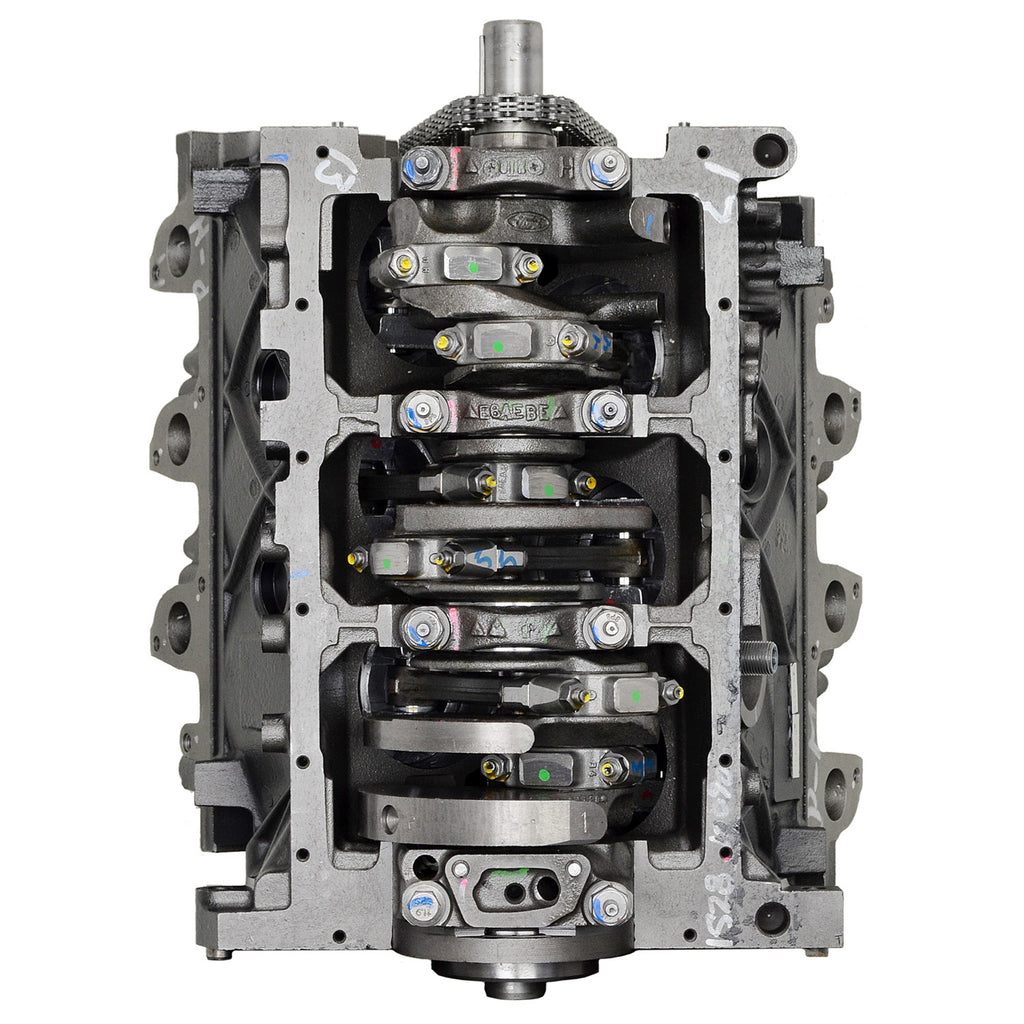How to Maintain and Optimize the 2.2 Ford Ranger Engine for Long-Lasting Performance
How to Maintain and Optimize the 2.2 Ford Ranger Engine for Long-Lasting Performance
Blog Article
What Makes an Automobile Engine Run Smoothly: Leading Tips for Ideal Treatment
The smooth operation of a cars and truck engine is essential to both performance and long life, making optimum care a vital responsibility for vehicle proprietors. What details steps should you focus on to ensure your engine stays in peak condition?
Regular Oil Modifications
One of one of the most critical elements of cars and truck upkeep is ensuring your engine gets normal oil changes. Engine oil lubes interior components, reduces friction, and aids preserve ideal operating temperature levels. Over time, oil weakens as a result of warm, pollutants, and the natural by-products of combustion, resulting in decreased efficiency and potential engine damage.
The majority of suppliers advise altering the oil every 5,000 to 7,500 miles, but this period can differ based on driving conditions and oil kind. For example, synthetic oils might permit for longer periods between modifications. Regular oil modifications not just enhance engine efficiency however also boost gas effectiveness, as tidy oil promotes smoother procedure.
Disregarding oil modifications can result in sludge accumulation, which impairs blood circulation and can result in severe engine problems. It is crucial to inspect oil degrees routinely and monitor for any type of uncommon modifications in shade or consistency, which could show contamination or deterioration.

Keeping Coolant Degrees
Keeping appropriate coolant degrees is crucial for preventing engine overheating and ensuring optimum efficiency. The coolant, commonly a combination of water and antifreeze, flows with the engine, taking in warm and avoiding thermal tension. Insufficient coolant can lead to increased engine temperature levels, which might cause extreme damages or also complete engine failure.
To maintain optimum coolant levels, frequently inspect the coolant storage tank, normally found in the engine bay. Ensure the coolant is filled to the advised mark, as suggested in your vehicle's proprietor handbook. It is advisable to examine the levels at the very least when a month or soon journeys, especially throughout severe weather.
If you see that the coolant level is consistently reduced, there might be a leakage in the cooling system, which should be resolved quickly to stop additional complications. 2.2 ford ranger engine. In addition, flushing the coolant system every 2 to 3 years can assist get rid of any gathered debris and make sure efficient heat exchange
Monitoring Air Filters

It is recommended to check the air filter every 12,000 to 15,000 miles, or more regularly if driving in dusty or adverse conditions. A simple aesthetic assessment can commonly expose whether the filter is dirty or harmed. If the filter shows up blemished or has noticeable dirt buildup, it needs to be changed immediately.
Using a top quality air filter created for your details automobile design can further enhance engine performance. In addition, some lorries might take advantage of reusable filters that can be cleaned and re-installed, supplying a ecologically pleasant and affordable alternative.
Inspecting Spark Plugs
Glow plugs are crucial components of a vehicle's ignition system, directly affecting engine efficiency and performance. They develop the trigger that stirs up the air-fuel mixture in the burning chamber, helping with the engine's power generation. Routine evaluation of ignition system is vital try these out for preserving optimal engine function and preventing prospective problems.
Dark residue or oil deposits can suggest improper burning, while a white or raw look might suggest getting too hot. Both conditions require instant interest to stop further engine damages.
It's advisable to inspect ignition system every 30,000 miles, or as recommended in your lorry's owner guidebook. Furthermore, consider changing them according to the producer's standards, as used or old stimulate plugs can bring about misfires, minimized fuel effectiveness, and increased discharges.
Monitoring Tire Stress
Under-inflated tires can lead to reduced fuel performance, raised tire wear, and jeopardized handling. Normal surveillance of tire stress is necessary for optimal car operation.
Tire stress ought to be examined at the very least when a month and soon journeys. Utilize a dependable tire pressure scale to gauge the stress when the tires are chilly, preferably prior to the lorry has actually been driven for at the very least 3 hours. Describe the car's owner manual or the placard situated on the driver's side door jamb for the manufacturer's recommended stress degrees.
It is crucial to note that tire pressure can fluctuate with changes in temperature level; a decrease of 10 ° F can lead to a 1-2 psi decrease in stress. In addition, aesthetically examine tires for any type of indications of wear or damage throughout your tracking routine. Keeping correct tire pressure not only boosts automobile safety yet also boosts fuel efficiency and lengthens tire life, eventually contributing to a smoother engine efficiency.
Final Thought
Finally, maintaining an automobile engine's smooth operation calls for thorough focus to numerous essential factors. Routine oil changes, proper coolant degrees, other clean air filters, well-maintained trigger plugs, and ideal tire stress collectively add to improved performance and durability. Abiding by these maintenance practices not only boosts fuel performance but additionally promotes a safer driving experience. Eventually, a proactive method to engine treatment is necessary for guaranteeing dependability and functionality gradually. 2.2 ford ranger engine.
One of the most essential facets of cars and truck maintenance is ensuring your engine gets routine oil modifications. Engine oil lubricates internal components, decreases friction, and assists preserve optimum operating temperatures. Regular oil adjustments not their explanation only improve engine performance however additionally enhance gas efficiency, as clean oil promotes smoother operation.
Insufficient coolant can lead to increased engine temperatures, which might create serious damage or even total engine failing.

Report this page